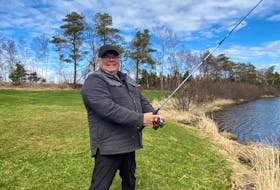With a protest by non-aboriginal fishermen scheduled for Tuesday at the Saulnierville wharf, the Sipekne’katik First Nation called out DFO, the RCMP and the provincial government for undermining their moderate livelihood fishery.
In a letter addressed to federal Fisheries Minister Bernadette Jordan, RCMP commanding officer for Nova Scotia Lee Bergerman and Premier Stephen McNeil , Chief Michael Sack says fishermen from his community have had their boats burned and equipment sabotaged at wharves by non-aboriginal fishermen while on the water Fisheries and Oceans Canada has been seizing their gear.
Meanwhile they have been denied service by private businesses who refuse to sell them bait or fuel.
“The Sipekne’katik band is respectively calling on the responsible ministers and relevant agencies to uphold the rule of law amidst ongoing violence, threats, human rights discrimination and ongoing failure to uphold the 1999 Supreme Court of Canada decision R.Vs. Marshall, recognizing the Mikmaq right to fish and trade,” reads the letter.
The famous Marshall decision upheld the right of the Mi’kmaw to earn a “moderate livelihood” off natural resources.
To buy itself time, Fisheries And Oceans Canada spent $600 million buying licences and gear over the seven years that followed and handing them over to First Nations as communal community licences.
In total, 32 of 34 eligible First Nations signed commercial access agreements with the federal regulator of the fishery in exchange for licences and boats.
While those licences granted access they did not address the right of individual Mi’kmaw to make a “moderate livelihood” when fishing, according to First Nations leaders. The Supreme Court of Canada never clarified what a “moderate livelihood” means.
Negotiations between Fisheries and Oceans Canada and the Mi’kmaw Rights Initiative over how to implement that fishery have dragged on for 21 years.
"The Department is working with First Nations to implement the right to fish in pursuit of a moderate livelihood through negotiation of Rights Reconciliation Agreements," reads a written response from Fisheries and Oceans to The Chronicle Herald on Monday.
"The Department recognizes this right through the provision of commercial fish access and the issuance of communal commercial fishing licences."
As is becoming an annual rite of fall, tensions are ratcheting up again as First Nations fishermen engage in the lucrative lobster fishery outside of the commercial season.
Recently, hundreds of non-aboriginal fishermen protested outside of Jordan’s constituency office in Bridgewater.
They argued that First Nations fishermen should have to follow the same rules as non-aboriginals.
The latter have had to buy licences that on the lucrative South Shore can go for about a million dollars, then follow extensive regulations.
Colin Sproule, president of the Bay of Fundy Inshore Fishermen’s Association, told reporters that tractor-load after tractor-load of lobsters are leaving Saint Mary's Bay,” where, as he spoke “more than 40 boats were fishing illegally.”
Though, as in previous years, Fisheries and Oceans have seized gear from First Nations fishermen they have stopped short of laying charges. First Nations fishermen have told The Chronicle Herald they want to be charged because the courts have already ruled in their favour.
In the vacuum of enforcement, the Assembly of Nova Scotia Mi’kmaw Chiefs has been developing management plans with individual First Nation communities.
But those management plans haven’t been made public.
“We know our people are frustrated that they can’t yet earn a moderate livelihood from fishing, despite the right being affirmed by the highest courts in the country,” said Chief Terrance Paul, co-chair and fisheries lead for the Assembly of Nova Scotia Mi’kmaw Chiefs, in a news release announcing the management plans last week.
“We are equally frustrated. We have been at the table for years fighting for movement from the federal government so that our people can have access to the waters and resources.”









